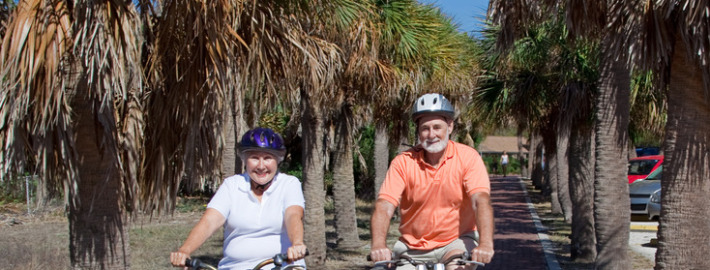Michigan Adopts E-Bike Law
Bicycling in Michigan has enjoyed a resurgence in popularity in recent years due in large part to the expansion of rail trails and other pathway systems, which allow cyclists to ride bikes off of roadways. Rail trails have become transportation corridors allowing cyclists to commute to work, exercise, or just sight see in a safe manner.
Electric bikes (e-bikes) are rising in popularity because they break down barriers preventing people from cycling. For a commuter, an e-bike allows the rider to get to and from work faster and with less effort. For a less experienced or weaker cyclist, an e-bike allows the rider to keep up with the rest of the ride group, or tackle longer distances or steeper inclines. And for many, an e-bike is the means to achieve physical fitness. Today, e-bikes represent the fastest growing segment of the bicycle market. However, with the surging popularity of e-bikes, confusion arose whether an e-bike was truly a bicycle, and whether they could be legally ridden on trails and pathways closed to motorized vehicles.
Michigan became the 7th state to pass legislation specifically aimed at reducing the confusion faced by retailers, consumers, and law enforcement as to what e-bikes are and where they can be used. Prior to the passages of these laws, e-bikes were technically classified as mopeds and could not be used on trails and pathways closed to motorized vehicles.
Under the new law most e-bikes are classified as bicycles, not mopeds. The law creates a 3-tier e-bike classification system. Under this system, only Class-1 e-bikes, which are defined as pedal-assisted bikes (the rider must pedal) that can reach assisted speeds of up to 20 mph, may be ridden on any linear trail or other similar paved or groomed pathway unless prohibited by local authorities. Class-2 and Class-3 e-bikes, generally classified as bikes with electric motors that have the capability of self-propulsion (the rider doesn’t need to pedal), or which can reach a maximum pedal-assisted speed of 28 mph, are prohibited on linear trails and other similar paved or groomed pathways unless permitted by local authorities. The law gives discretion to local authorities to best manage e-bikes on local trails as they deem appropriate for access and safety. Class 2 and 3 e-bikes usage will mostly be limited to roadways (with or without bike lanes).
The law does not address the use of e-bikes on mountain bike trails, which is generally prohibited.
Other states that have passed similar legislation include California, Colorado, Illinois, and Utah.
The new law is Public Act 139 of 2017.



